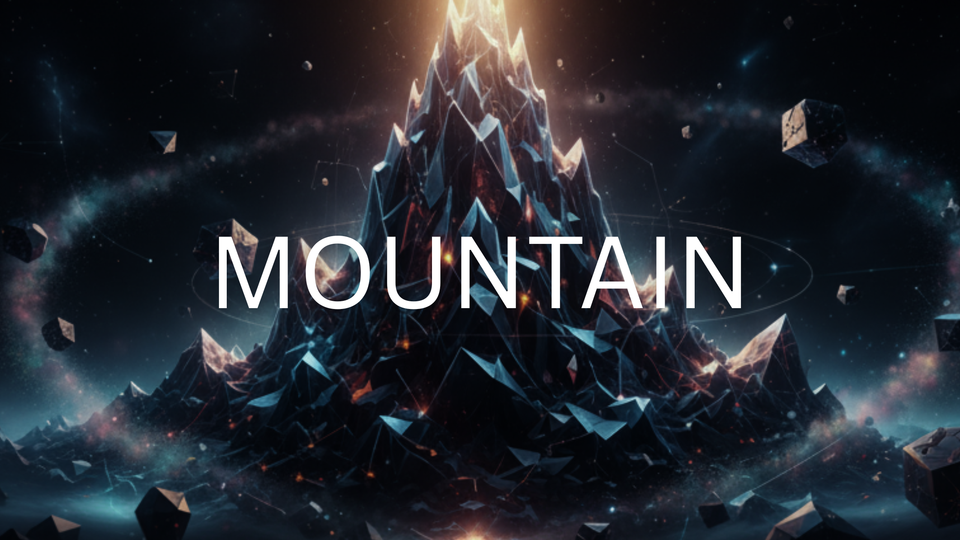Mountain

It’s overwhelming coming back after a break. I’ve only had one day but it was enough to be flooded with a couple of ideas that I want to tackle. While having multiple ideas is fine, the problem is that most of them are still underdeveloped and I’m unsure which direction to take them beyond the initial idea. It’s moments like this I have to remind myself of a quote the legendary Japanese director Akira Kurosawa gave about screenwriting.
I think young people today don’t know the trick of it. They start and want to get to the end right away. When you go mountain climbing, the first thing you’re told is not to look at the peak but to keep your eyes on the ground as you climb. You just keep climbing patiently one step at a time. If you keep looking at the top, you’ll get frustrated. I think writing is similar. You need to get used to the task of writing. You must make an effort to learn to regard it not as something painful but as routine.
I get into my head a lot sometimes. Thinking about the destination and the work that I need to put in to get to where I want to go. The downside of being a conscientious person. To add to this, I’m thinking about the outcome, wondering how others are able to create works that are just… intimidating and any other incidental thoughts related to being creative. Bills, chores, food, the works. So before I even step onto the foot of the mountain. I’m already weighed down by a thousand and one things. This isn’t to say that all these other things are unimportant. But I should try to compartmentalize them better so that when it’s time to do what I need to do, I do it. Put on a pair of metaphorical blinders and take that first step.
That’s just the first part of the advice. If we look at the peak of the mountain, we see how far we have to go and become demotivated because the task seems insurmountable. We then have to look down at our steps. A metaphor for breaking down one big task into smaller more achievable tasks. Instead of building a house, we start by getting the materials we need to build it. We create our blueprints for the floorspace.
If we’re writing a book, we start with one chapter or a page at a time.
Careful we don’t fall into the trap of “over-preparing”. A form of procrastination. Where even a smaller task is a challenge in itself. Writing the backstory or lore of the fantasy world you’re building is a smaller task than writing the entire book, but it still sounds too vague or large for our minds to wrap around. Our smaller tasks need to be specific and the most actionable. So instead of saying, I want to create the backstory for my characters, you would write down the earliest childhood memory of your main character. Be specific.
There is a psychological benefit besides shrinking down the task. You’re able to create a visual signifier of your progress. Each small task done is a visual reminder to you on how much you’ve done. Like seeing your footsteps on the forest floor as you climb the mountain, you see how much progress you’ve made and it motivates you to keep moving forward.
From time to time, it is important to look up at the mountain. To keep your bearings. Unless the path has been well trodden or you have a guide, you might have gone off the beaten path and so far off your intended destination that you’ve wasted time. But then that might not be such a bad idea? Perhaps that unintended detour bore fruit that would help you down the line? Or maybe it was just a moment of beauty or reflection that you might have never experienced if you had just followed the path undoggedly.
There are times when the smallest task is harder than just taking the next step. Perhaps, the smallest task is to write the next line and we’re already tapped out in terms of inspiration. Maybe at that point it’s a good time to head home and try again next time. Inspiration might come after you get some rest. Even when you’re climbing a mountain, you won’t get it right the first time or the second or even the third. It’s after numerous tries building up your body. The next time you try climbing up the mountain again, you might have learnt new skills, have a mountain climbing partner or have better stamina to tackle it and the initial struggles become much easier. To the point that they no longer register as struggles anymore. It’s just another stroll in the park, like breathing naturally. What was once hard is now easy and you get to try something harder until that next thing becomes easy as well.
And perhaps one day, you’ll reach the top of the mountain.
Member discussion